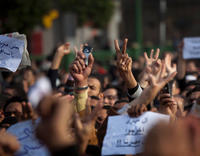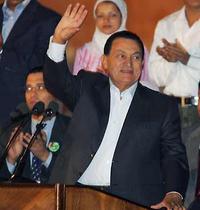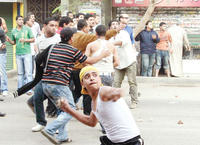-
Russia fears increasing domestic radicalization
In an increasing trend, the suspected mastermind behind the recent Russian airport bombing is an ethnic Russian who converted to radical Islam; terrorists are increasingly recruiting more ethnic Russian Muslim converts to their cause; several recent prominent figures in Islamic terrorist groups have been ethnic Russian converts; the latest suspect, Vitaly Razdobudko, is believed to also be behind a failed attack planned for New Year’s Eve; authorities have been searching for Razdobudko since he went missing last October
-
-
Russia's counter terrorism woes
A recent editorial in the Washington Post illustrates Russia’s difficulties in successfully deterring terrorist attacks; the Post blasts Russian leaders citing corruption as a significant reason for their inability to successfully develop counter-terrorism policing abilities, intelligence agencies, and to secure public areas; the editorial also blames Putin’s hard line stance on the northern Caucasus region as fueling extremist movements; in 2010 terrorist attacks in the Caucasus doubled; as a stark warning, the Post reminds readers that the 2014 Winter Olympic Games is scheduled to be held on the border of the Caucuses
-
-
DHS border security searches of electronics questioned
Debate continues over DHS’s search and confiscation of materials at international U.S. borders; the latest case to make the headlines is that of David House, 23, an MIT researcher whose laptop, flash drives, and cameras were confiscated at the U.S.-Mexico border by DHS on his way back into the United States after a vacation in Mexico; House writes in a blog post that he is one of few individuals who are able to visit Manning in his detention facility in Quantico, Virginia
-
-
Top Gun footage used in Chinese news broadcast
A Chinese news agency appears to have aired a segment using footage from the popular Hollywood action film “Top Gun”; the news segment was on Chinese air force training exercises and showed a jet destroying a J-10 fighter; Chinese bloggers immediately noticed the similarities between the news footage and a scene from “Top Gun”; side by side comparison of the footage show that the two appear identical; the news agency promptly removed the video from its website and provided no comment on the similarity
-
-
Middle East upheavals complicate U.S. counterterrorism efforts

If the democratic surge in Egypt causes Islamist organizations such as the Muslim Brotherhood to join the government, the toughest counterterrorism challenge ahead may come as U.S. officials are forced to work with this new government, seeking common ground against terrorist enemies even if the Islamic faction tries to distance Egypt from its neighbor, Israel; American political leaders have long fused counterterror aims with support for Israel, but even those Arabs — let alone more religious Islamist organizations such as the Brotherhood — who oppose al Qaeda and jihadism, insist on the distinction between terrorism, on the one hand, and what they consider as a legitimate resistance to continued Israeli occupation of Palestinian lands; contending with an altered Arab world landscape with rising Islamic factions could thus force hard choices on the United States
-
-
Arab Silicon Valley plan raise fears of CPU shortages, security risks
GlobalFoundries, originally part of U.S. No. 2 CPU manufacturer AMD, plans to spend $7 billion on a new chip fabrication facility in Abu Dhabi, the first in the Middle East; business and security experts say it is not a good idea to have a large segment of the U.S. and world economy depend on chips manufactured in an unstable, turmoil-prone region; the worry is not only that a hostile government coming to power would cut off computer components necessary for economnic activity and national security, but that foreign governments could build software or hardware into chips that could transmit confidential information
-
-
China stealth-jet maker eyes U.S. contracts
Last month China shocked military analysts by unveiling its first stealth fighter; as is the case with many other Chinese technological advances, the technology was stolen from the United States, albeit indirectly: the Chinese fighter was made with technology from a U.S. stealth plane shot down in 1999 by Serbian forces during the Kosovo war; now, the Chinese manufacturer is teaming up with a small California company to bid on U.S. defense contracts, including contracts for stealth aircraft; the Chinese company also wants to bid on the contract to build the new generation of Marine One helicopters, which are used to transport the president (the U.S. president, not China’s)
-
-
Egypt's opposition groups have varied, conflicting agendas

The opposition to the Mubarak regime is not unified except on one issue: the removal of Hosni Mubarak from power; the five major groups leading the opposition include the pious Muslim Brotherhood, the liberal Al Ghad Party, the nationalist WAFD Party, the socialist 6 April Youth movement, and the umbrella group National Association for Change (NAC), led by Mohamed el Baradei, which includes all these groups, and many more; the Brotherhood enjoys the broadest popular support among Egypt’s poor (and the vast majority of Egyptians are poor), and the best organization; to prevent the Brotherhood from coming to power, the WAFD and AL GHAD parties, with the support of el Baradei and some of the smaller members of the NAC, should consider cooperation with Ahmed Shafik, Omar Suleiman, and Sami Annan — the troika set to succeed Mubarak
-
-
Free program to detect suspicious vehicles unveiled
Funded by the Federal Emergency Management Agency (FEMA) and administered by the TSA, the First Observer program encourages parking lot operators to watch for oddities such as improperly parked cars, civilians conducting surveillance, and strange odors such as diesel from gasoline vehicles
-
-
Disaffected youth, stagnation, poverty threaten Mideast regimes

In six Arab-Muslim states in the Middle East, six — Egypt, Jordan, Morocco, Oman, Saudi Arabia, and Yemen — more than 50 percent of the citizenry are under the age of 25; in other six states — Bahrain, Kuwait, Lebanon, Qatar, Tunisia, and the United Arab Emirates — the “under 25s” make up between 35 to 47 percent of the population; in Yemen, some 75 percent of the population is under 30, and the poverty rate exceeds 45 percent; in Egypt, some 66 percent of the population is under 30, while fully half the country’s 80 million citizens lives on less than $2 per day; since 1980, the Arab world has experienced the highest rate of [population] growth of any region in the world; during the same period, the Arab economies have been sputtering, creating far too few jobs
-
-
Freshman lawmakers receive terrorism briefing
Last week new members of the U.S. House of Representatives were briefed on the current state of terrorism; their briefing warned that while al Qaeda had been disrupted it was still a dangerous organization; al Qaeda is increasingly turning to radicalization of American Muslims to carry out small scale attacks; the briefing also covered the delicate balance between expanded policing powers and civil liberties as Americans want security, yet are highly suspicious of the federal government; in moving forward the briefing urged lawmakers to candidly reassess costly security measures in light of growing fiscal concerns
-
-
Mubarak to step down after September elections

President Hosni Mubarak announced Tuesday that he will not seek reelection in September; he said on national TV that he will devote his remaining months in office to fashioning a constitutional reform; President Obama welcomed the announcement, saying that Egypt’s transition “must begin now”; he said the United States would be happy to offer assistance to Egypt during that process; Mubarak’s plan appears to divide Egyptians — and the protesters; some are determined to carry on, while others think these are major concessions and that the protests have gone far enough; Egypt’s powerful army vowed that it would not use force against the protesters, despite maintaining a strong presence in central Cairo
-
-
The threat: The Muslim Brotherhood
The Muslim Brotherhood, established in Egypt in the 1920s, is described by one scholar as “the mothership for the jihadi ideologies and thinking—- therefore one can say today’s Al Qaeda, and today many other jihadists, are off shoots of the Muslim Brotherhood”; among the Brotherhood’s graduates: Al Qaeda’s number two leader, the Egyptian doctor Ayman al-Zawahiri who was imprisoned for three years on weapons charges following President Anwar Sadat’s assassination in 1981; Hamas, the terror network behind suicide bombings and rocket attacks in Israel; the Islamic Jihad Movement in Palestine, whose goal is the destruction of Israel
-
-
Pro-government demonstrators clash with opponents

Thousands of pro-government demonstrators appear in Egypt’s major cities and clash with anti-government demonstrators; the anti-Mubarak protesters have been accusing the army of moving aside to let their pro-government rivals enter streets and square where anti-government protesters congregate; in a statement, Egypt’s army called for demonstrators to return to their homes; meanwhile, Internet services were returning to the country, having been cut off for days by the government; state television also reported an easing of a nationwide curfew
-
-
Stuxnet may turn Bushehr into a new Chernobyl
The destructive Stuxnet virus infected some 45,000 industrial control computers and servers in Iran; it destroyed more than 20 percent of Iran’s centrifuges, and, on 16 November, forced Iran to shut down uranium enrichment operations; it also infected the control system of the Bushehr reactor; Stuxnet is a sophisticated virus: while doing its destructive work, it makes sure that control computers continue to display “normal” operational information; one Russian expert described how engineers at Bushehr “saw on their screens that the systems were functioning normally, when in fact they were running out of control”; a new intelligence report says that with control systems disabled by the virus, an accident in the reactor is likely — an accident which would have the force of a “small nuclear bomb”
-
More headlines
The long view
Factories First: Winning the Drone War Before It Starts
Wars are won by factories before they are won on the battlefield,Martin C. Feldmann writes, noting that the United States lacks the manufacturing depth for the coming drone age. Rectifying this situation “will take far more than procurement tweaks,” Feldmann writes. “It demands a national-level, wartime-scale industrial mobilization.”
No Nation Is an Island: The Dangers of Modern U.S. Isolationism
The resurgence of isolationist sentiment in American politics is understandable but misguided. While the desire to refocus on domestic renewal is justified, retreating from the world will not bring the security, prosperity, or sovereignty that its proponents promise. On the contrary, it invites instability, diminishes U.S. influence, and erodes the democratic order the U.S. helped forge.
Fragmented by Design: USAID’s Dismantling and the Future of American Foreign Aid
The Trump administration launched an aggressive restructuring of U.S. foreign aid, effectively dismantling the United States Agency for International Development (USAID). The humanitarian and geopolitical fallout of the demise of USAID includes shuttered clinics, destroyed food aid, and China’s growing influence in the global south. This new era of American soft power will determine how, and whether, the U.S. continues to lead in global development.
Water Wars: A Historic Agreement Between Mexico and US Is Ramping Up Border Tension
As climate change drives rising temperatures and changes in rainfall, Mexico and the US are in the middle of a conflict over water, putting an additional strain on their relationship. Partly due to constant droughts, Mexico has struggled to maintain its water deliveries for much of the last 25 years, deliveries to which it is obligated by a 1944 water-sharing agreement between the two countries.
How Disastrous Was the Trump-Putin Meeting?
In Alaska, Trump got played by Putin. Therefore, Steven Pifer writes, the European leaders and Zelensky have to “diplomatically offer suggestions to walk Trump back from a position that he does not appear to understand would be bad for Ukraine, bad for Europe, and bad for American interests. And they have to do so without setting off an explosion that could disrupt U.S.-Ukrainian and U.S.-European relations—all to the delight of Putin and the Kremlin.”
How Male Grievance Fuels Radicalization and Extremist Violence
Social extremism is evolving in reach and form. While traditional racial supremacy ideologies remain, contemporary movements are now often fueled by something more personal and emotionally resonant: male grievance.
